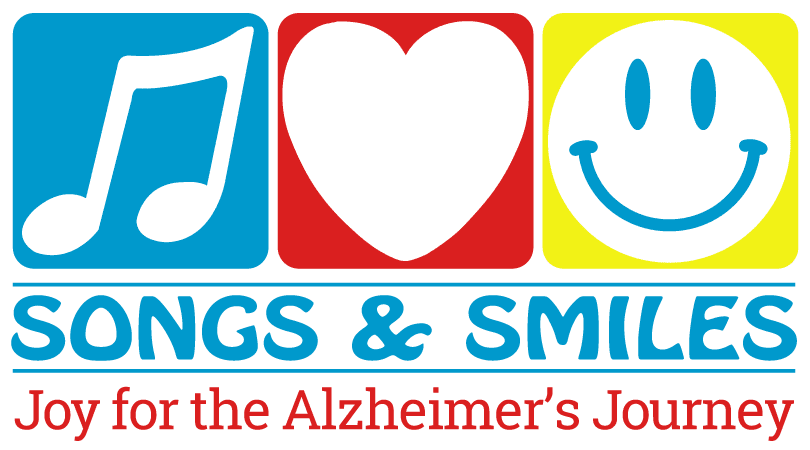Why We Exist > The Need
The Need
Alzheimer’s destroys connections.
Alzheimer’s is a disease, not a normal part of aging. The disease often develops slowly, but it always gets worse, never better, and there is no cure.
For the person who has Alzheimer’s, the disease destroys connections with their own memories and their connections with other people.
A Growing Problem
In the United States alone, an estimated 6.9 million people are living with Alzheimer’s. The risk for Alzheimer’s and other dementias increases with age.
Percentage of the U.S. population living with Alzheimer’s:
- 5.0% of people age 65-74
- 13.2% of people age 75-84
- 33.4% of people age 85 and older
The baby-boom generation has now reached the age of 65 and older, and this segment of the population is expected to increase dramatically in the coming years. By 2030, the 65 and older segment will make up more than 20 percent of the total population, up from 16 percent in 2020.
Current projections forecast the number of people age 65 and older living with Alzheimer’s to reach 13.8 million by 2060.
The Strain on Caregivers
Too often, the disease also destroys connections between people caring for the person who has Alzheimer’s. The journey challenges the entire family, because it is distressing to watch your loved one slowly decline. Caring for someone who has Alzheimer’s gets progressively harder and can last for many years.
Sadly, many primary family caregivers get so worn out that they die even before the loved one who has Alzheimer’s. Other caregivers survive, but fail to thrive. Family members and friends stop visiting, eventually drifting apart. Celebrations cease.
The Stats
- More than 11 million Americans provide unpaid care for people living with dementia.
- About two-thirds of primary family caregivers are women, and about 30 percent of caregivers are age 65 or older.
- About one-quarter of caregivers are “sandwich generation” caregivers – meaning they care not only for an aging parent, but also for children under age 18.
- More than 40 percent of caregivers report that no one else provides unpaid assistance.
- People caring for someone who has Alzheimer’s have increased risk of disease and health complications, and 74 percent of caregivers report they are concerned about maintaining their own health.
The Good News
Caregivers who get training and support experience lower stress and better health, and in turn are better equipped to care for their loved ones.
Songs & Smiles strives to increase awareness of the unique challenges faced by families caring for a loved one who has Alzheimer’s and provide caregivers with practical training and resources.
By working together, we can create joy-filled connections for the Alzheimer’s journey.
Supporting Research and Statistics
•Family Caregiver Alliance (https://www.caregiver.org/alzheimers-disease-caregiving)
•2024 Alzheimer’s Disease Facts and Figures (https://www.alz.org/alzheimers-dementia/facts-figures)
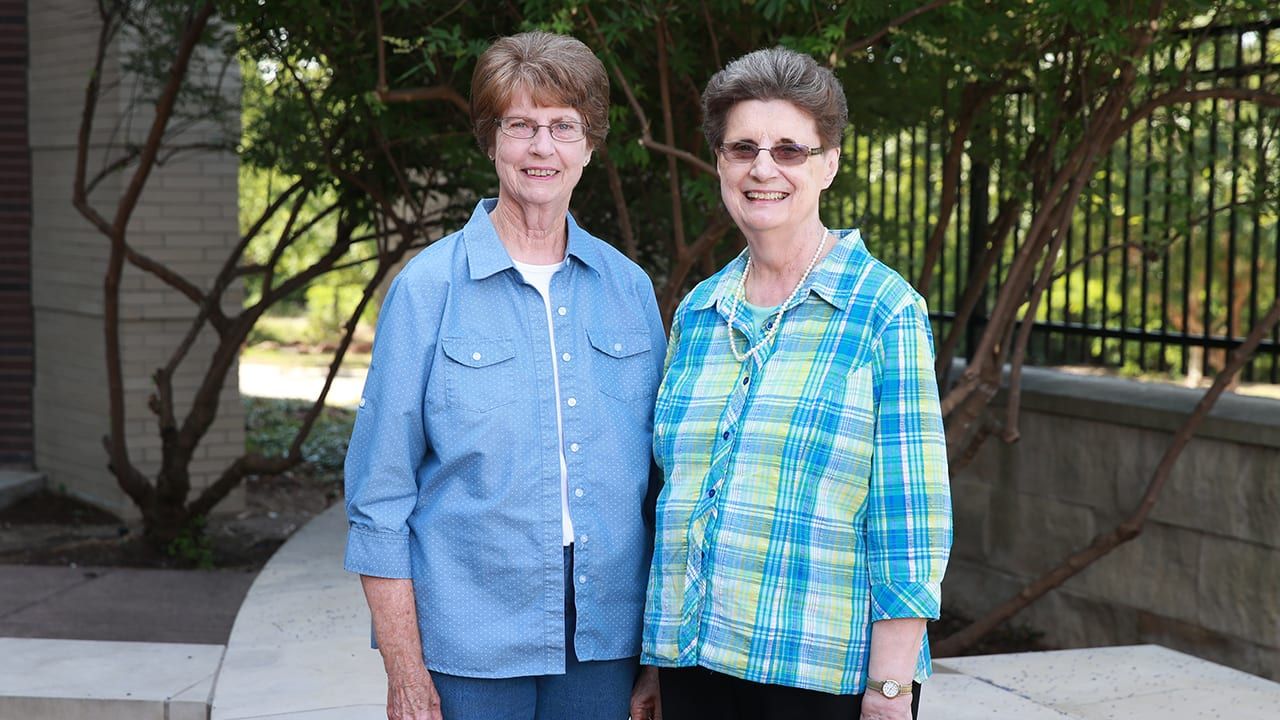
Trish with her sister, Mary, in 2017
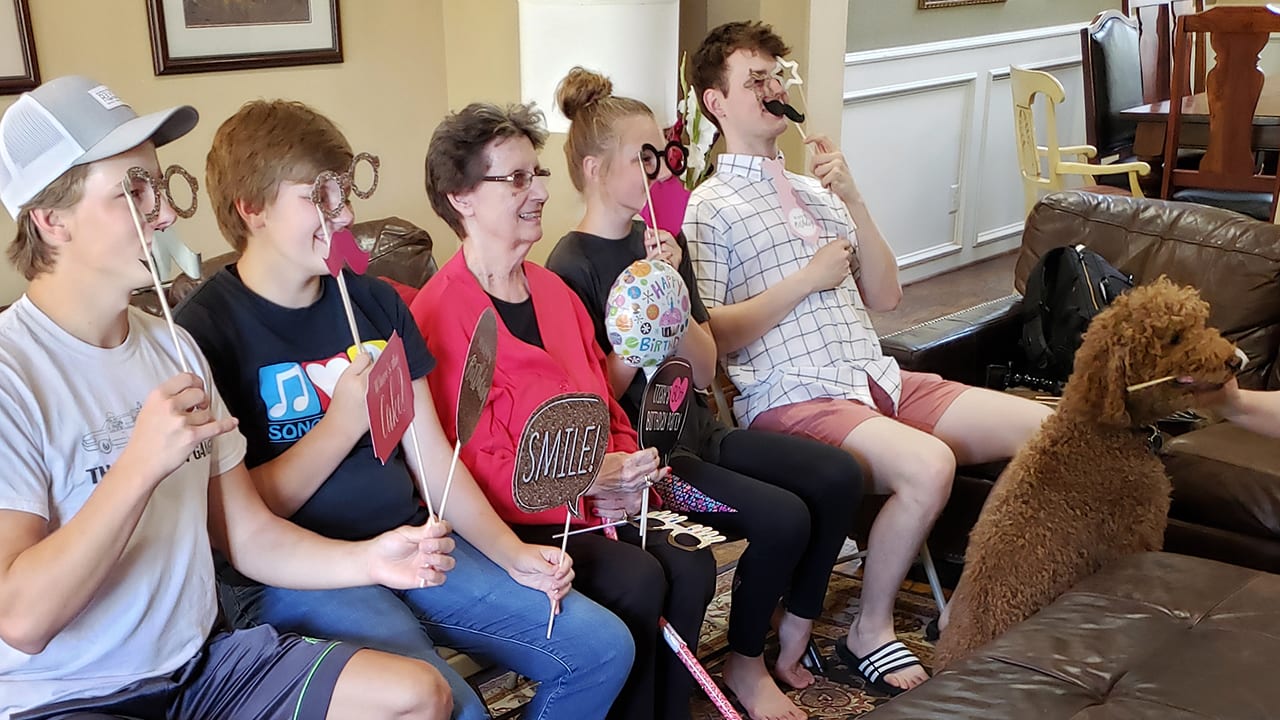
Celebrating her 80th birthday in 2019, Trish with four of her grandchildren (Jimmy, Libby, Eileen, and Andrew) and Tater Tot
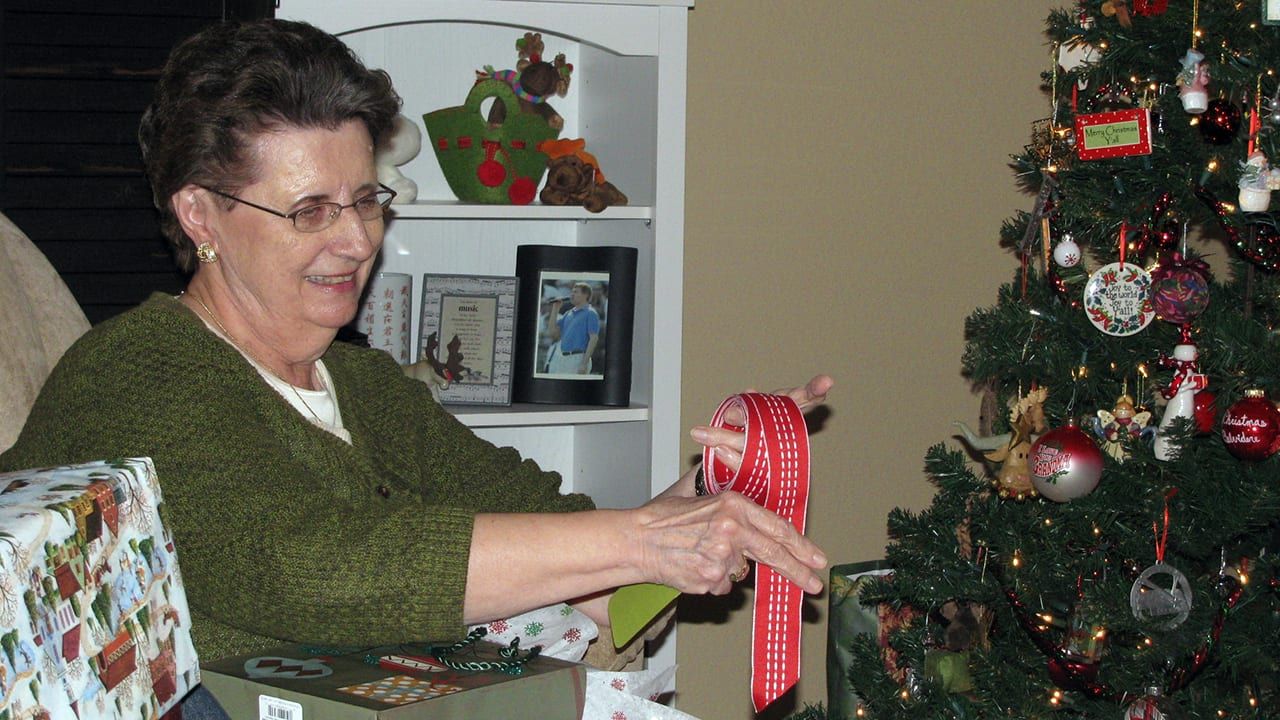
Trish opening a Christmas present in 2013
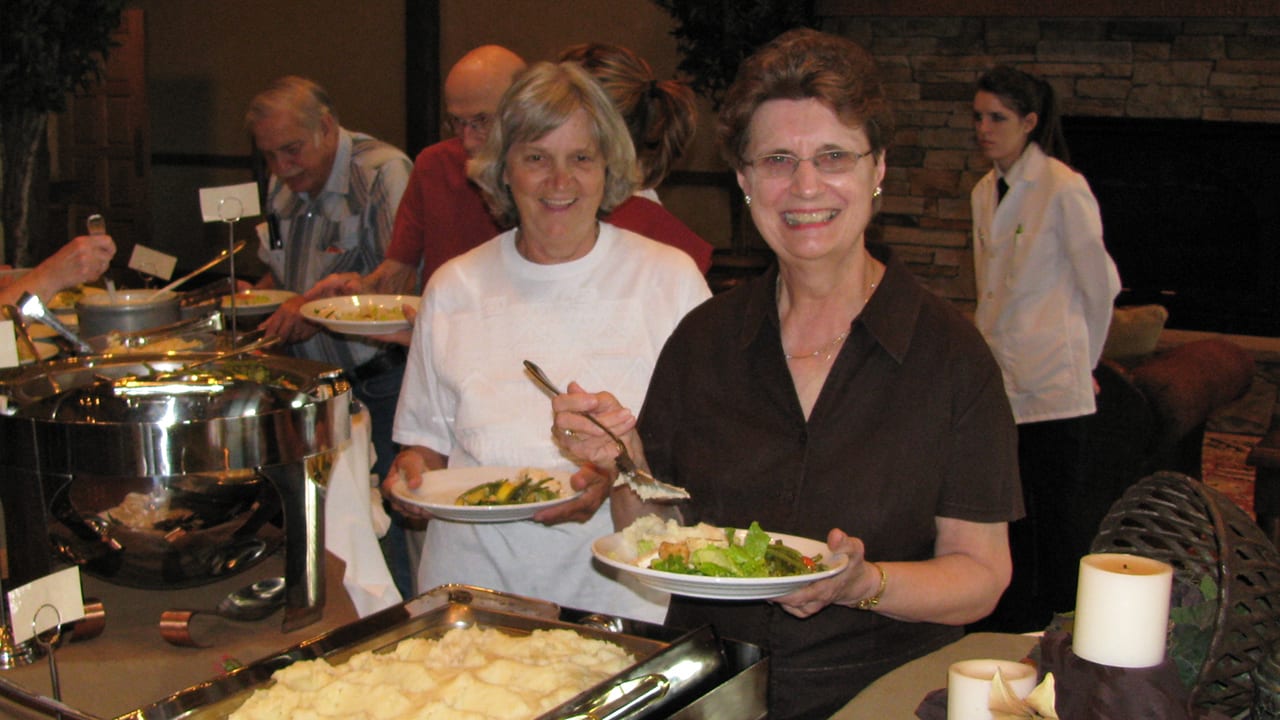
Trish at her 70th birthday party in 2009 with her sister-in-law Marian
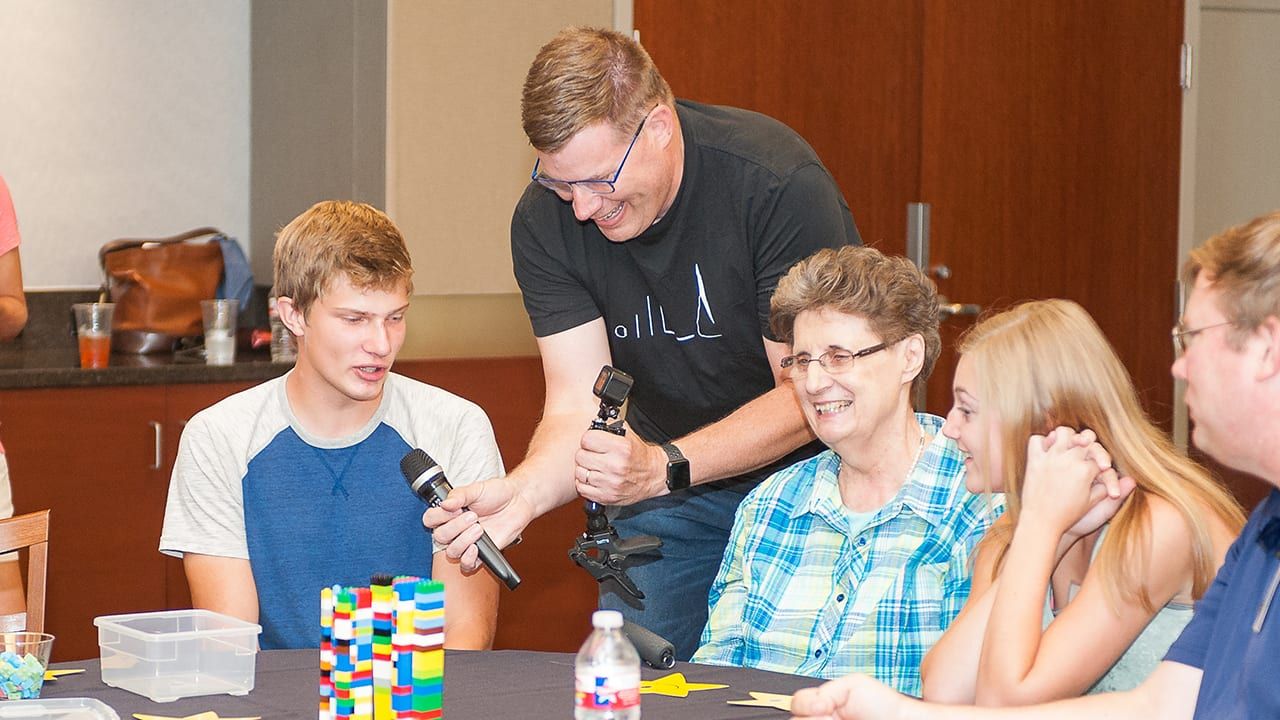
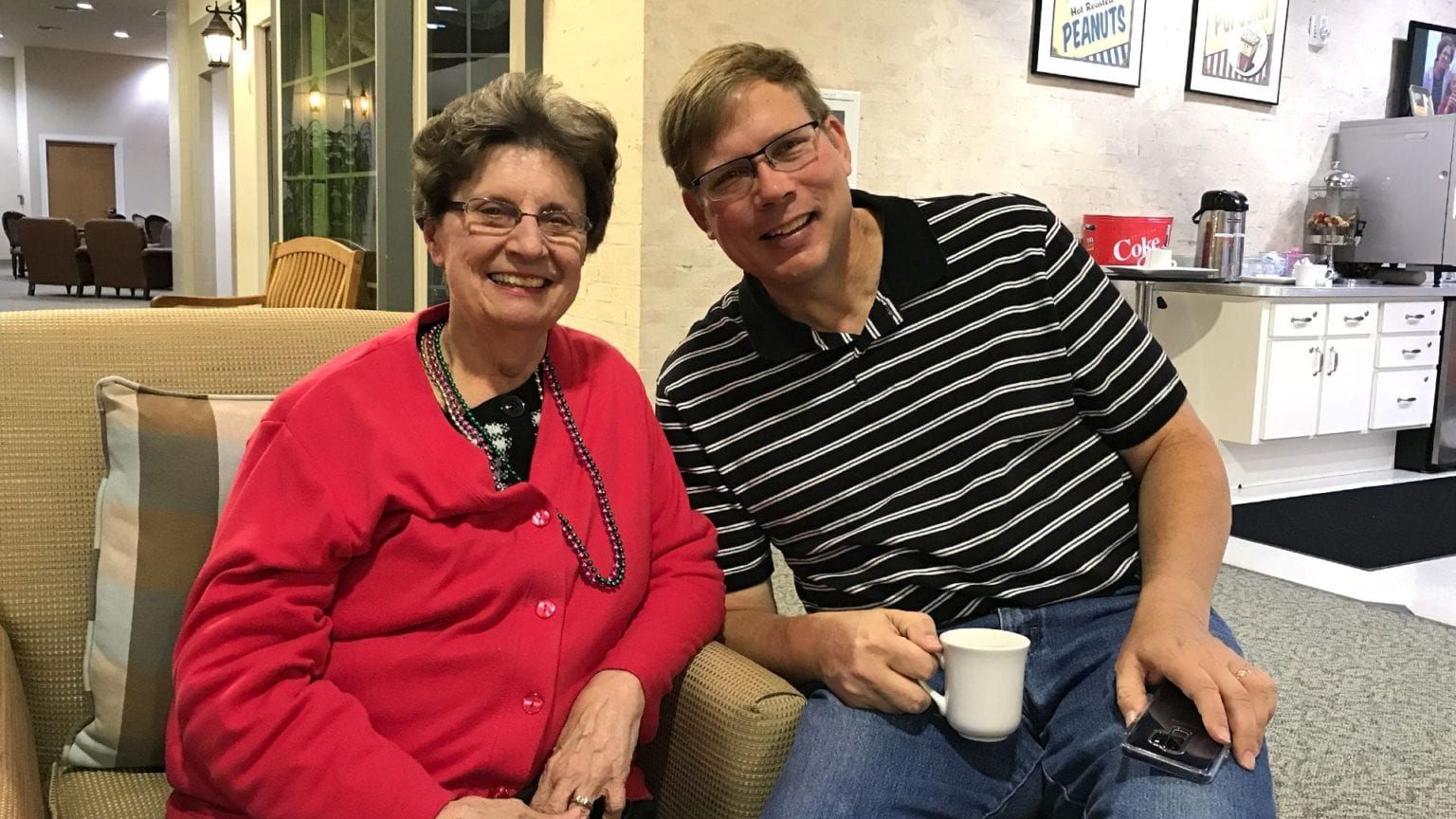
A visit in early 2019 from Trish’s son Paul, taking an opportunity between flights to stop in and see his mom
Get Involved
Care for Caregivers
Provide encouragement and support to those on the front lines.
Care Tips
Learn how to better connect with someone living with dementia.
Share Your Story
Encourage others by sharing your own story.
Volunteer
Contact us about getting involved as a volunteer.
